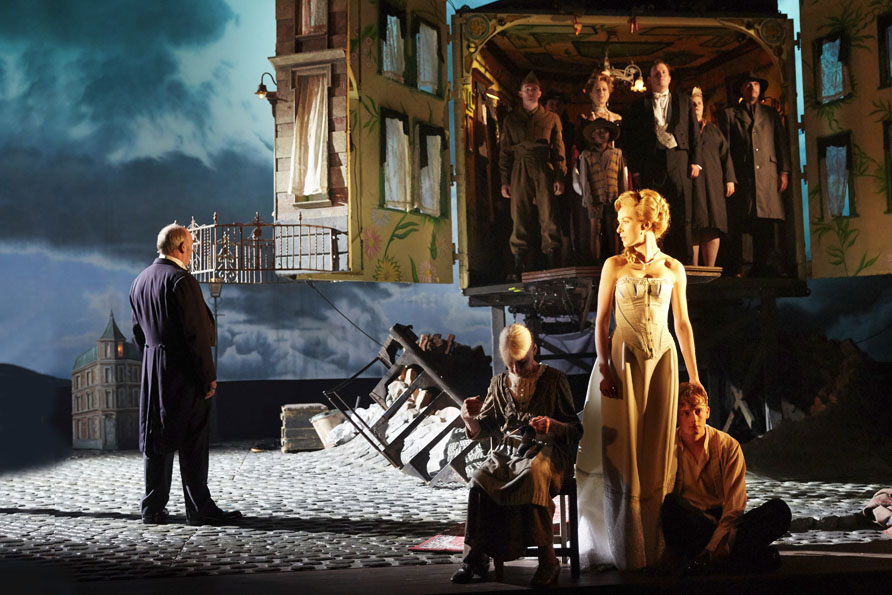J B Priestley’s classic polemic is very much in step with Jeremy Corbyn’s recent social inequality cris de coeur. The production is clearly in danger of being closed down any minute by the Ministry of Information! As Inspector Goole stepped forward to entreat us with his sermon of a caring society, I fully expected George Osborne’s thought police to storm the building, arrest the cast and put the audience on advanced surveillance.
Back in the 1950s, Priestley was indeed ‘removed’ from his regular broadcasts on the hugely popular 1950s BBC Postscripts radio programme. In a 1940 article in The Spectator, Graham Greene had described the playwright as “a leader second only in importance to Mr Churchill. And he gave us what our other leaders have always failed to give us – an ideology.” Priestley’s views were considered dangerously leftwing by the post-war establishment, and therefore out of step with the BBC’s mandate of impartiality. Sound familiar?
All of which of course is why An Inspector Calls continues to chime with a contemporary audience. The play stands as metaphor for conscience, and within its construct exists a prime example of why the status quo always closes ranks when threatened by utopian dreams of fairness for all, even when offered chances for redemption. Priestley’s Inspector Goole stalks all our souls, but like the champagne-quaffing Birling family, will we choose to go on turning a blind eye to the virtues and values of a fairer, supportive society?
Back in 1992, director Stephen Daldry literally shook theatrical preconceptions with his production of the play. With a stage set vying for as much attention as the main characters he proved there could be daring ways to produce Edwardian drama. Ian MacNeil’s set is a magnificent piece of work. The Birling household works like a giant doll’s house on stilts, while a darker, poorer world inhabited by urchins and strays lies below. While something of a wonder in itself, I couldn’t help but think that the set’s more extreme mechanics and pyrotechnics lost the play some of its gravitas by being simply over the top. But if nothing else it certainly provides for some great production stills and some open mouths amongst the younger members of the audience.
Understudy Adam Radcliffe brought assured gruffness to the character of knighthood-seeking business owner Arthur Birling. His fine home and family seem untouchable under his ambitious direction. But once Inspector Goole arrives the Birlings are gradually drawn down a path where they have no option but to confront their own shortcomings, with strong echoes here of Dickens’ Christmas Carol.
Carol Wildi’s Mrs Sybil Birling seethed wonderfully with injured pride and decorum, while Katherine Jack as daughter Sheila and Hamish Riddle as the dissolute son Eric both gave strong performances as the shocked and suddenly enlightened younger generation. Matthew Douglas impressed as the opportunist would-be son-in-law Gerald Croft while Liam Brennan gave a pacy performance as the enigmatic Inspector.
I was left with mixed feelings about the production. As impressive as the set was, I felt its physicality created at times too much distraction from the subtler dramas going on in the heads of the protagonists, but if it at least means we have a chance to hear Priestley’s timeless humane message, well so be it. ★★★★☆ Simon Bishop 18th November 2015
Photo Mark Douet


